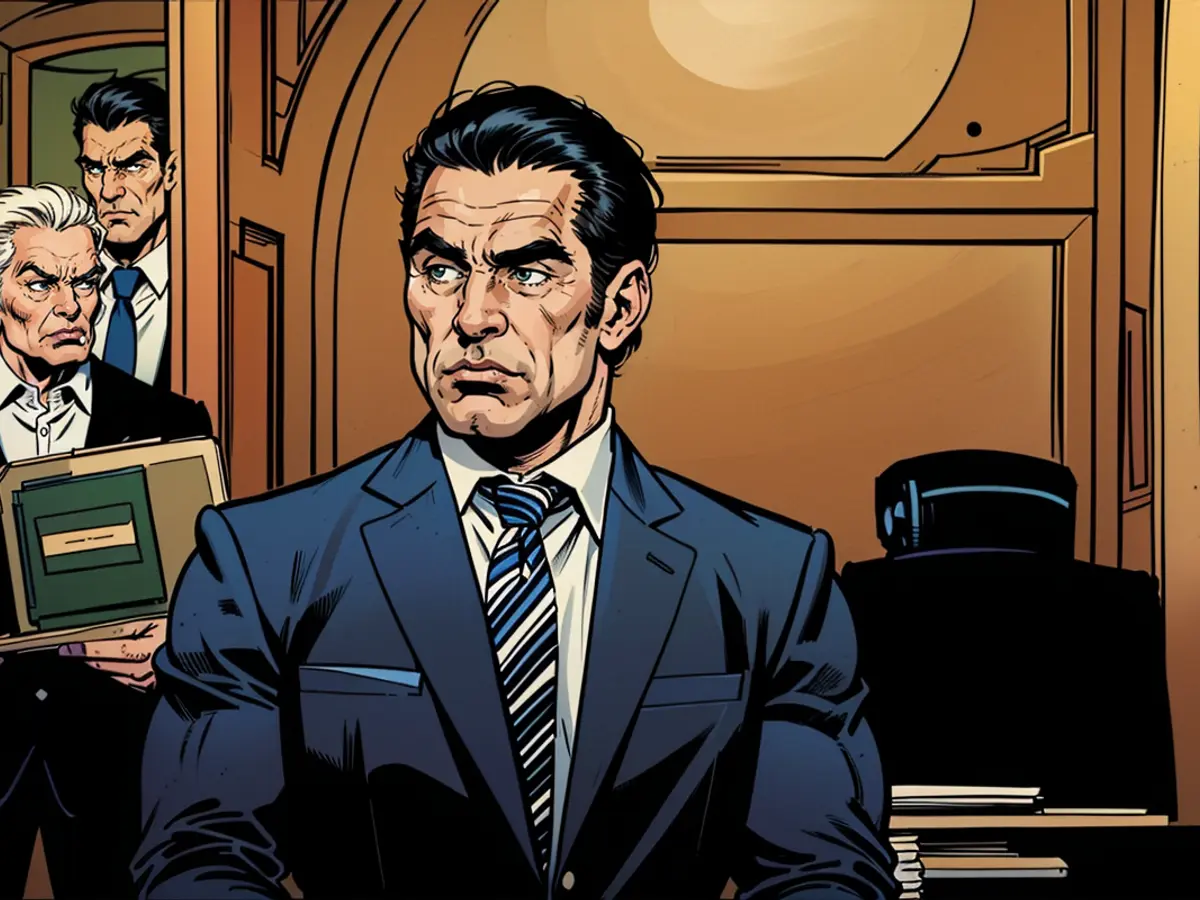Wirecard-Bookkeeper quits after eighteen months
For one and a half years, he kept quiet, watching as a co-defendant and his ex-boss fought in court over the billion-dollar Wirecard insolvency. Now, the former chief accountant of the financial conglomerate, Stephan von Erffa, speaks out to the prosecution and their star witness: He claims he didn't notice anything, doesn't see himself as an accountant.
In the Wirecard embezzlement trial, the former chief accountant of the corporation attacked the prosecution and their key witness, Oliver Bellenhaus. Bellenhaus manipulated and lied, according to defendant Stephan von Erffa, in front of the Munich Regional Court. "He's good at lying and cheating," Erffa stated. He himself believed in the existence of the allegedly fraudulent businesses. Erffa broke his silence after one and a half years.
Erffa criticized Bellenhaus and the prosecution in the same vein as the former Wirecard CEO Markus Braun. Braun's defense attorney Theres Kraußlach stated on the sidelines of the trial that his client's position had been undermined by Erffa's statements. In contrast, the prosecution relies on Bellenhaus' testimony to indict the three men, as he heavily implicated both co-defendants.
Erffa testified that Bellenhaus had been annoyed by his regular requests for documentation for the accounting. Since they didn't exist, Bellenhaus had forged them. "He was chaotic," Erffa said. Erffa had never had the impression of any oddities from him. "Everything came too late," he added. Bellenhaus was a "salesman type" and not a "careful banker." Bellenhaus had stated in the trial that he had doctored documents on Erffa's instructions based on the guidelines from the corporate headquarters.
"Feeling that no one was listening to me"
"I see that I unfortunately made mistakes that I regret," Erffa said. He apologized for them. As a department head, he had relied on his experts and the information provided by Bellenhaus and other departments. "I felt like a juggler, completely focused on ensuring that no ball fell, but I had no opportunity to engage with the balls in depth," the 49-year-old said.
Unlike Braun and Bellenhaus, Erffa had remained silent since the trial began in December 2022. "The reason was my feeling that no one was listening to me," he said. "I had the impression that exonerating evidence was not wanted." The prosecution accused Erffa of attempting to destroy evidence by damaging an official iPad, but it was only due to an accident. They also accused him of deleting data on the iPad before returning it to his employer.
Erffa was detained on suspicion of obstruction of justice for a brief period. A spokesperson for the prosecution stated on the sidelines of the trial that this suspicion had not been confirmed on the iPad but in other cases. Erffa will continue his testimony on Thursday and answer further questions. His lawyers described it as a contribution to clarification, but not a confession. The approximately 100 spectator seats in the courtroom at Munich Prison Stadelheim were sometimes fully occupied.
"I'm not an accountant"
Erffa, who was directly under the Finance Board and served as a Prokurist, described his work as very demanding. "It was always the case that two people wanted something from me at the same time. I'm not an accountant," the Economist engineer explained. His task was to improve processes. "That's my strength." He relied on his employees, including auditors, as well as information from other departments. At the board, he repeatedly complained about inadequate equipment and too few personnel.
The Wirecard Dax Group collapsed in 2020 when it was discovered that 1.9 billion Euros were missing from trust accounts in Asia. It is one of the largest financial scandals in German post-war history. The Prosecutor's Office refers to Braun, Bellenhaus, and Erffa as a gang that invented billion-dollar businesses with so-called third-party partners (TPA). They speak of fraud, balance sheet manipulation, market manipulation, and embezzlement.
Braun and Bellenhaus accuse each other. While Bellenhaus speaks of large-scale forgeries, Braun dismisses the accusations. The TPA business allegedly existed, but Braun and the hidden board member Jan Marsalek allegedly embezzled the missing billions.
Erffa now says that the TPA business only made up a very small part of his professional activities. "In all years, I had no reason to doubt the existence of the TPA business." According to earlier statements, this was in Marsalek's area. Erffa said he had only had contact with Braun and Marsalek seldom. "Dr. Braun, in my opinion, had something inapproachable about him," Erffa said. "I had the feeling that Dr. Braun was very far from operational business." He turned to Marsalek only when Bellenhaus did not or did not deliver evidence to the accounting department on time.
The former chief accountant's silence in the Wirecard trial lasted for over a year, but he eventually decided to testify against the prosecution's star witness, admitting that he saw himself more as an administrator than an accountant. Despite Bellenhaus' manipulative and deceitful behavior, which Erffa accused of, he never suspected any unusual activities due to Bellenhaus' disorganization and tardiness.
The so-called TPA business, a significant part of the Wirecard scandal, was a small aspect of Erffa's professional duties for all the years he worked at the company. Heclaimed that he had little contact with the allegedly involved individuals, mainly relying on Braun and Marsalek for information when necessary.








